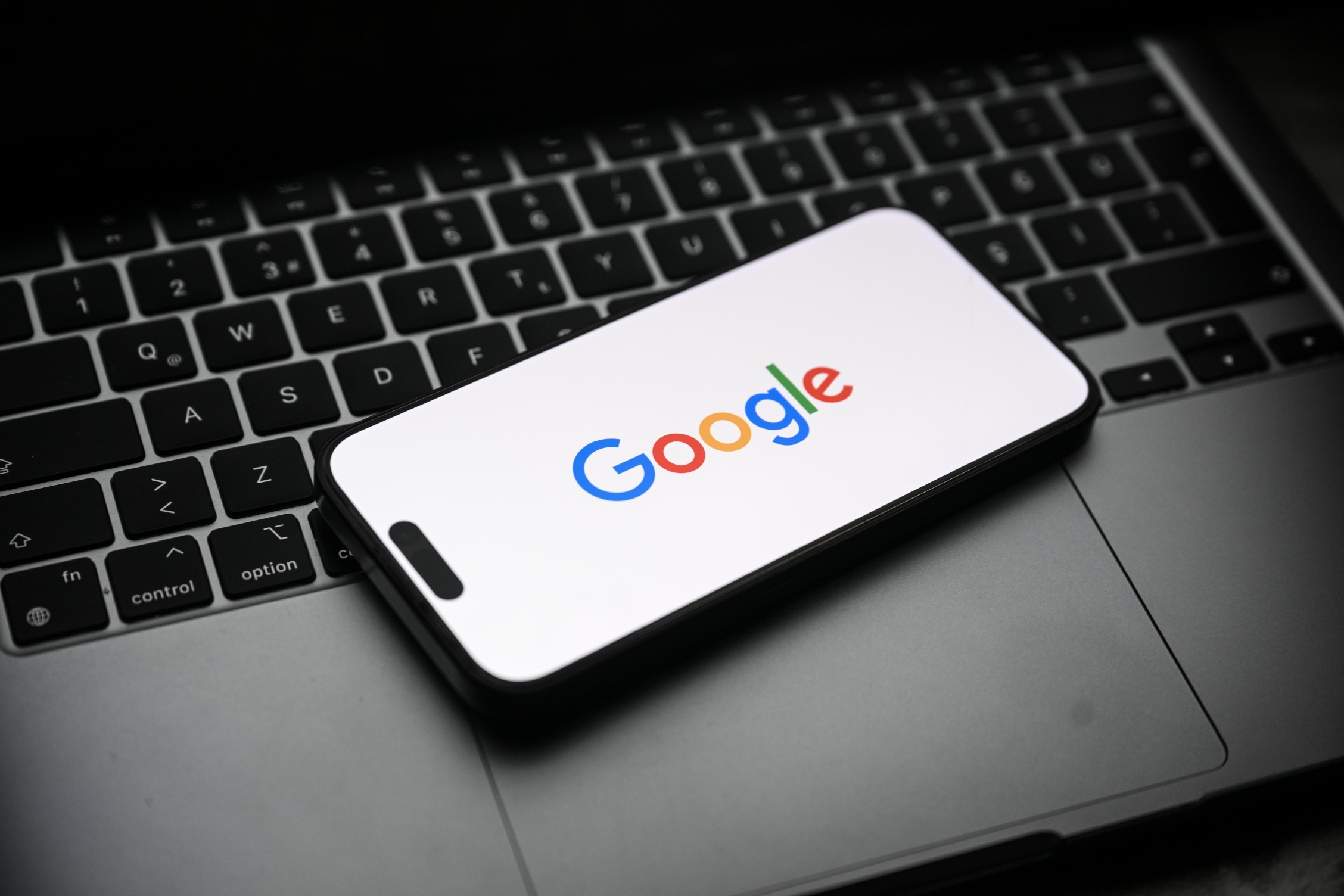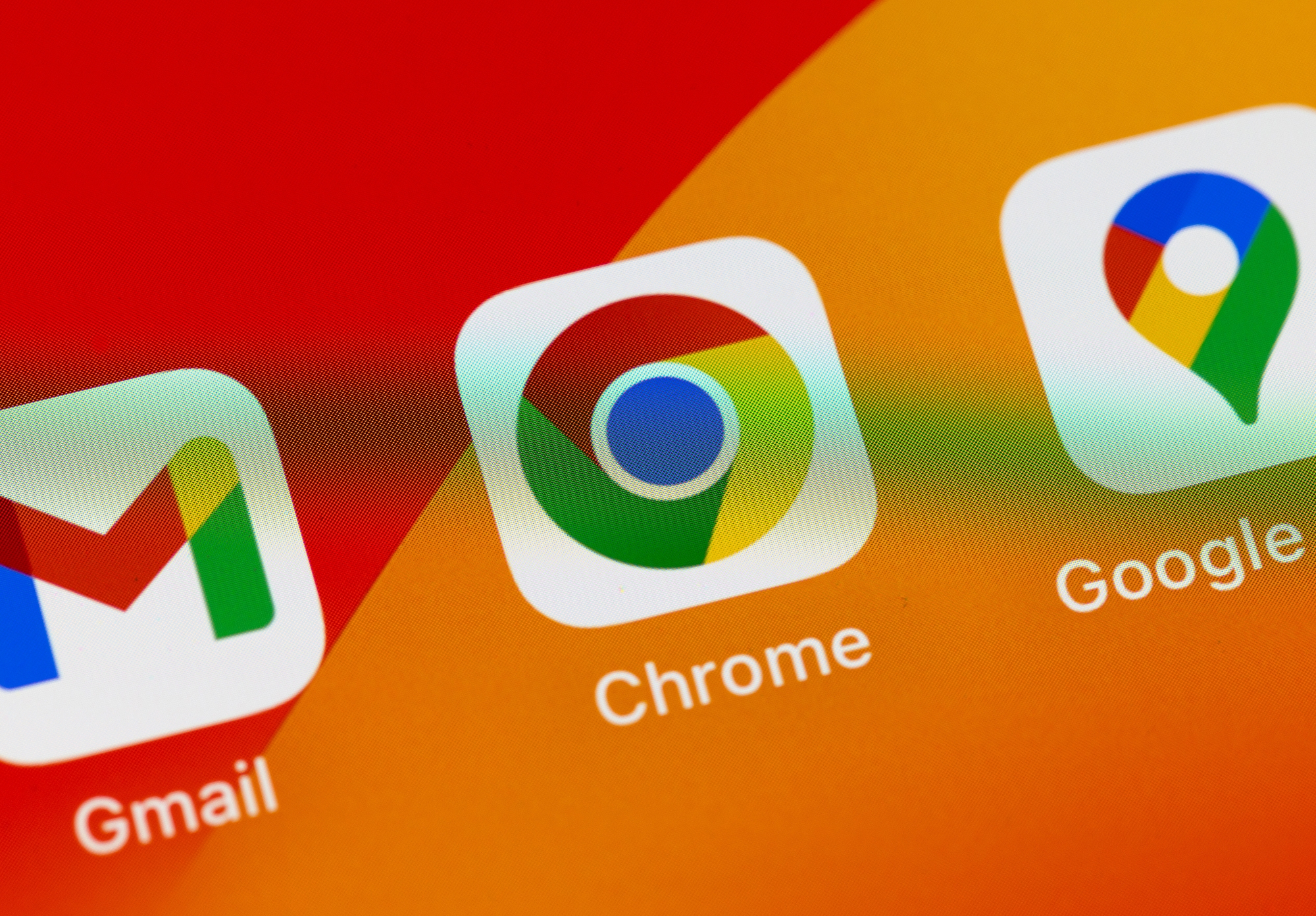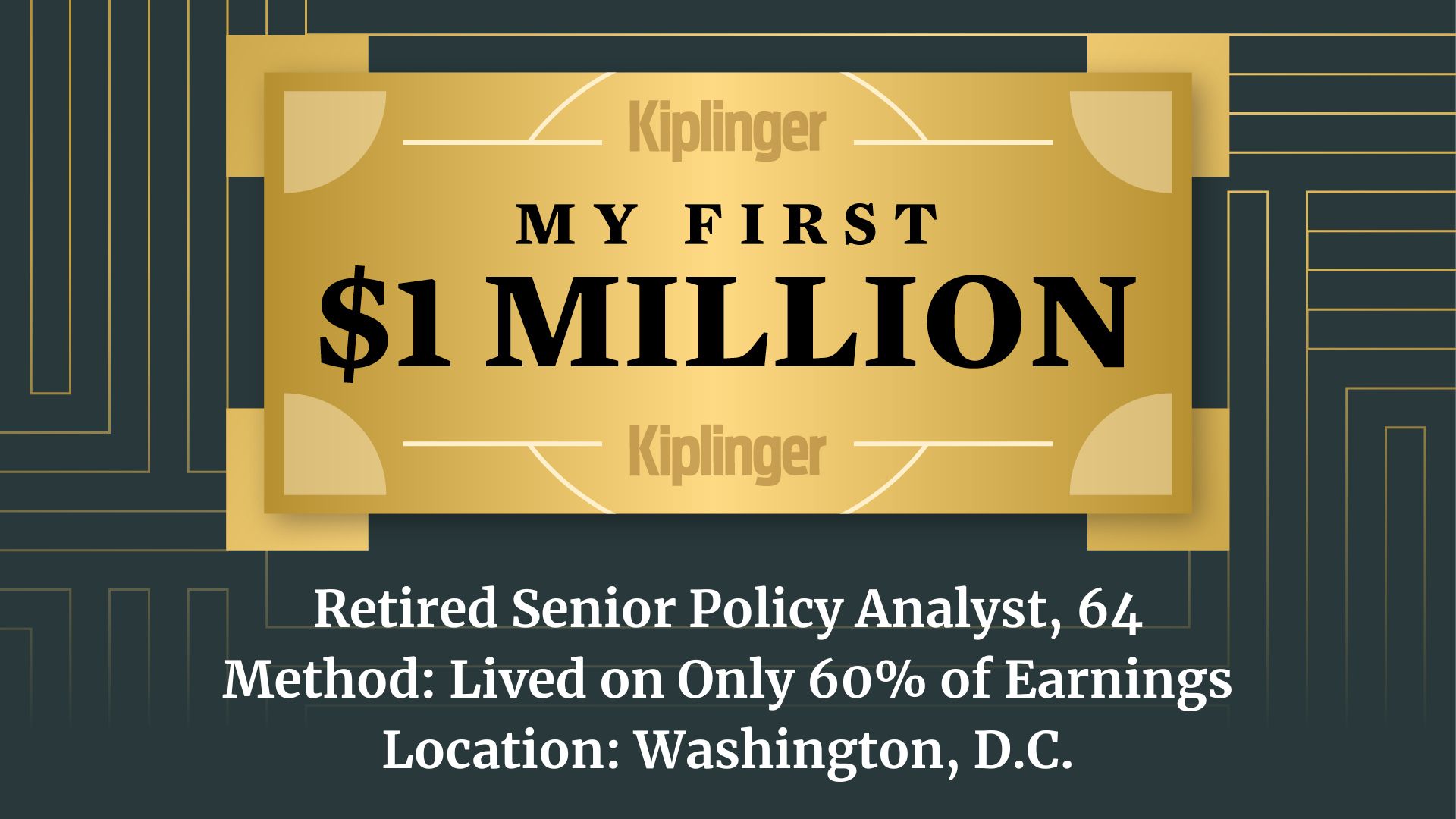$425 Million Google Class Action Lawsuit: Do You Qualify for a Payout?
Google was found liable for violating the privacy of 98 million users in a class action lawsuit. Are you one of them?

Profit and prosper with the best of Kiplinger's advice on investing, taxes, retirement, personal finance and much more. Delivered daily. Enter your email in the box and click Sign Me Up.
You are now subscribed
Your newsletter sign-up was successful
Want to add more newsletters?

In September, a federal jury in California found Google liable on two counts of privacy violations for continuing to collect the data of millions of users who had turned off a data-tracking setting in their Google Accounts. Google must pay $425 million for the privacy violations.
Google denies the allegations in the lawsuit and is appealing the verdict. Meanwhile, the plaintiffs are asking for an even higher payout than the $425 million.
There is no date set yet on when members of the nationwide class action lawsuit will get a payout or how much that payout will be. If a court overturns the verdict after the appeal, there might be no payout.
From just $107.88 $24.99 for Kiplinger Personal Finance
Become a smarter, better informed investor. Subscribe from just $107.88 $24.99, plus get up to 4 Special Issues

Sign up for Kiplinger’s Free Newsletters
Profit and prosper with the best of expert advice on investing, taxes, retirement, personal finance and more - straight to your e-mail.
Profit and prosper with the best of expert advice - straight to your e-mail.
Here’s what you need to know about the lawsuit, what’s next for the $425 million payout ordered by the jury and what you need to know about protecting your privacy and online security.
What is the Google class action lawsuit about?
The case of Rodriguez v. Google LLC was originally filed in July 2020. The plaintiffs accused Google of continuing to collect user data despite those users expressly turning off data-tracking settings in their Google accounts.
According to the class action lawsuit website for the case, “Google unlawfully accessed their [class action members’] mobile devices to collect, save, and use the data concerning their activity on non-Google apps that have incorporated certain Google software code into the apps.”
The plaintiffs allege that Google misrepresented the data-privacy options that users have and that, because of Google’s near-omnipresence on the internet, users have no meaningful way of stopping the company from tracking their data.
In the original complaint filed in July 2020, the plaintiffs said that Google “intercepts, tracks, collects and sells consumer mobile app browsing history and activity data regardless of what safeguards or ‘privacy settings’ consumers undertake to protect their privacy.”
They further allege that this is true even if you don’t use Google-branded apps or devices, as “Google still tracks and compiles their communications by covertly integrating Google’s tracking software into the products of other companies.”
The plaintiffs argue that 70% of websites use Google Analytics. I couldn’t find a source to verify that number. But according to GA4, a company that provides training and support for businesses using Google Analytics, 44 million websites use the data-analysis tools, representing more than 55% of all websites.
In either case, the plaintiffs’ argument about the difficulty of avoiding being tracked by the service still holds. “Other than staying off the internet entirely, there is no effective way for consumers to avoid Google Analytics and its surreptitious tracking.”
The lawsuit argues that because of the widespread use of Google Analytics, which continues to track users’ activity and other data across both websites and apps, the company misrepresented the degree of control users have over what data is collected about them and when.
The jury agreed with the plaintiffs that this constituted an invasion of privacy, though it didn't agree that Google violated users’ privacy with malice, oppression or fraud — a distinction that would have, potentially, allowed the court to demand “disgorgement” of the profits Google made by collecting that data.
As of now, Google denies all allegations and will be appealing the jury’s verdict. In a brief (PDF) filed on Tuesday, Google’s legal defense team argued, among other things, that its disclosures and privacy policy statements are unambiguous and could not be misread.
Specifically, the setting in question does not explicitly state that it revokes permission for the company to collect data for Google Analytics.
In other words, Google argues that users should have known that turning off “Web & App Activity” tracking in their Google account settings would not stop Google from tracking web and app activity. During the trial, the plaintiffs countered that point by arguing that the language is intentionally vague and deceptive on this point.
Save Up to 68% On Aura Identity Theft Protection
Aura provides everything you need to protect your identity. Get up to 250x faster fraud alerts, 3-bureau credit monitoring, up to $5 million in identity theft insurance, and 24/7 U.S.-based fraud support. It also includes an antivirus, VPN and password manager for proactive security. Kiplinger readers can save up to 68% when they sign up.
Preferred partner (What does this mean?)
How much does Google have to pay as part of the lawsuit?
While the plaintiffs initially sued for $31 billion in damages, the jury didn’t find Google liable on the third count of violating the California Comprehensive Computer Data Access and Fraud Act (CDAFA).
But for their liability on the two counts of privacy violations, the jury determined that Google must pay $425 million. That includes approximately $247 million for members with Android devices and $178 million for members with non-Android devices.
After Google appealed the decision, the plaintiffs filed a motion asking the court to increase the payout to $2.36 billion. This amount would "disgorge" Google of the estimated net profits it made on the user data it gathered, the plaintiffs argued.
The final amount, if any, is still to be determined.
Who is eligible for the $425 million class action lawsuit and payout?

There are approximately 98 million members of the class action lawsuit. Specifically, those who might be eligible for a payout if Google’s appeal is rejected include individuals who meet the following criteria:
- Had a Google account that is “non-enterprise” or “non-Unicorn” (meaning a supervised account for users under 13).
- Turned the “Web & App Activity” or “supplemental Web & App Activity” setting turned off or paused at any point from July 1, 2016 to September 23, 2024.
- Despite turning off or pausing that setting, your data was still transmitted to Google from a non-Google branded app.
Can you protect your privacy online?
What this case highlights for users of the internet is that you should assume your data is always being collected by default.
Even if you have access to privacy settings on a particular app, website or service, there’s a good chance your data is still being collected, if not by the website itself, by the Google Analytics code embedded in approximately 55% to 70% of websites.
Given that reality, what can you do to reclaim some control of your privacy? Here are a few tips that aren’t perfect solutions, but can help:
- Limit the number of apps you download to your mobile devices, and regularly uninstall apps that you no longer use.
- Make use of whatever privacy controls a website or app does offer. When you get that cookie notice upon landing on a website, look carefully for your options to turn off as many tracking settings as the website allows you to. When signing up for a service or downloading an app, go to the account settings and turn on any privacy settings that you can. Check back regularly for new privacy settings as these change periodically.
- Use a virtual private network (VPN), a type of software that encrypts your online activity and obscures your location when browsing the internet.
- Be aware that even with all these privacy settings enabled, there's still often a lot of data about your online activity, devices and even location being collected and shared about you. Keeping this in mind can help protect yourself from scams and fraud by making you more alert to suspicious emails, texts or phone calls, even when they include personal information about you.
Get more consumer news and other personal finance insights straight to your inbox. Subscribe to our newsletter, A Step Ahead.
Related content
Profit and prosper with the best of Kiplinger's advice on investing, taxes, retirement, personal finance and much more. Delivered daily. Enter your email in the box and click Sign Me Up.

Rachael Green is a personal finance eCommerce writer specializing in insurance, travel, and credit cards. Before joining Kiplinger in 2025, she wrote blogs and whitepapers for financial advisors and reported on everything from the latest business news and investing trends to the best shopping deals. Her bylines have appeared in Benzinga, CBS News, Travel + Leisure, Bustle, and numerous other publications. A former digital nomad, Rachael lived in Lund, Vienna, and New York before settling down in Atlanta. She’s eager to share her tips for finding the best travel deals and navigating the logistics of managing money while living abroad. When she’s not researching the latest insurance trends or sharing the best credit card reward hacks, Rachael can be found traveling or working in her garden.
-
 4 High-End Experiences Worth the Splurge After 50
4 High-End Experiences Worth the Splurge After 50These curated date ideas provide the perfect backdrop for couples ready to enjoy the very best that the world has to offer.
-
 Health Care Stocks Have Sagged. Can You Bet on a Recovery?
Health Care Stocks Have Sagged. Can You Bet on a Recovery?The flagging health care sector has perked up a bit lately. Is it time to invest?
-
 Costco's Auto Program: Can Membership Pricing Really Save You Money on a Car?
Costco's Auto Program: Can Membership Pricing Really Save You Money on a Car?Costco's Auto Program can simplify the car-buying process with prearranged pricing and member perks. Here's what to know before you use it.
-
 What Is an Assumable Mortgage and Could It Save You Thousands?
What Is an Assumable Mortgage and Could It Save You Thousands?With mortgage rates still elevated, taking over a seller’s existing home loan could lower monthly payments — if the numbers work.
-
 Have You Fallen Into the High-Earning Trap? This Is How to Escape
Have You Fallen Into the High-Earning Trap? This Is How to EscapeHigh income is a gift, but it can pull you into higher spending, undisciplined investing and overreliance on future earnings. These actionable steps will help you escape the trap.
-
 I'm a Financial Adviser: These 3 Questions Can Help You Navigate a Noisy Year With Financial Clarity
I'm a Financial Adviser: These 3 Questions Can Help You Navigate a Noisy Year With Financial ClarityThe key is to resist focusing only on the markets. Instead, when making financial decisions, think about your values and what matters the most to you.
-
 Where Olympians Store Their Medals is a Great Lesson For Your Valuables and Cash
Where Olympians Store Their Medals is a Great Lesson For Your Valuables and CashWhat you can learn about protecting your cash and values from where Olympians store their medals.
-
 An Executive's 'Idiotic' Idea: Skip Safety Class and Commit a Federal Crime
An Executive's 'Idiotic' Idea: Skip Safety Class and Commit a Federal CrimeSeveral medical professionals reached out to say that one of their bosses suggested committing a crime to fulfill OSHA requirements. What's an employee to do?
-
 How You Can Use the Financial Resource Built Into Your Home to Help With Your Long-Term Goals
How You Can Use the Financial Resource Built Into Your Home to Help With Your Long-Term GoalsHomeowners are increasingly using their home equity, through products like HELOCs and home equity loans, as a financial resource for managing debt, funding renovations and more.
-
 How to Find Free Money for Graduate School as Federal Loans Tighten in 2026
How to Find Free Money for Graduate School as Federal Loans Tighten in 2026Starting July 1, federal borrowing will be capped for new graduate students, making scholarships and other forms of "free money" vital. Here's what to know.
-
 My First $1 Million: Retired Senior Policy Analyst, 64, Washington, D.C.
My First $1 Million: Retired Senior Policy Analyst, 64, Washington, D.C.Ever wonder how someone who's made a million dollars or more did it? Kiplinger's My First $1 Million series uncovers the answers.
